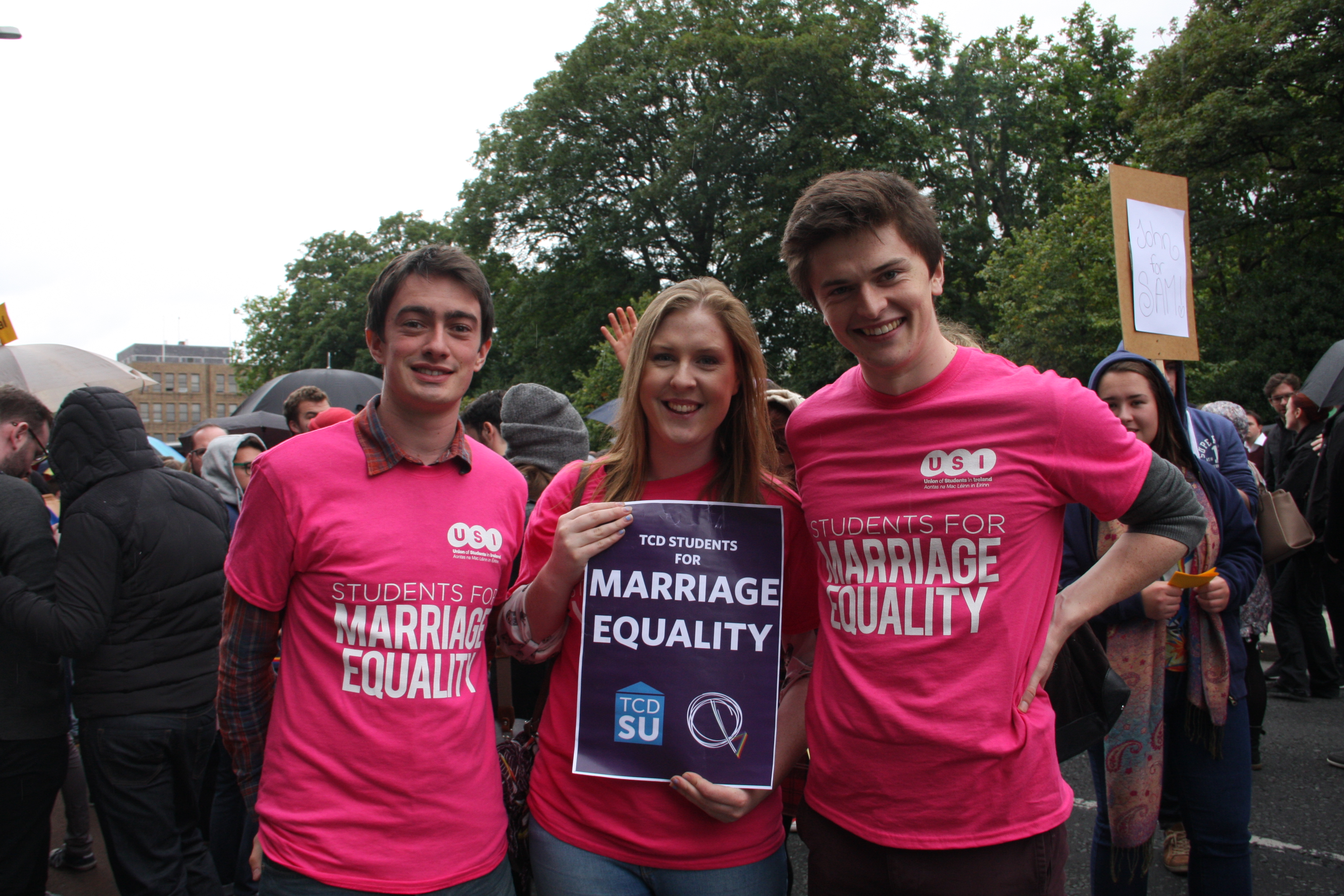
The formation of a strategic plan for the SU was one of McGlacken-Byrne’s manifesto pledges when running for president. He outlined the rationale behind the it as being that there is “no continuity between years … no long-term thinking,” with the same questions being asked by each new cohort of sabbatical officers and “the same solutions offered.”
The idea of the strategy, he said, is to “identify [current] problems that everyone agrees on”, identify metrics that would allow progress to be measured and “leave the middle up to subsequent officers.”
Styled as a town hall meeting where students could have their say on SU direction, there were 12 people in attendance, only four of whom did not have connections with the SU. Consequently, everyone there was prompted to respond to each question.
Proceedings began with McGlacken-Byrne asking, “What is the point of the SU?” It was generally agreed that its two roles are representation and service-provision. President-elect, Lynn Ruane, questioned how well it achieved the former, saying that, while the SU may aim to represent, it can’t be said to do so fully because of the low level of participation by students.
Attention then turned to what it is the SU does “well” and what it does “badly”. Glenn Fitzpatrick, who was previously the president of DIT SU and is currently running for the presidency of the USI, said that college student unions are “in the middle of an identity crisis.” Whereas, previously, they “didn’t have to fight for anything … and prioritised service provision,” he said they’ve since been “taken by surprise by the commercialisation of higher education” and have, therefore, “become good at everything except what they were supposed to do initially.”
Sinead Baker cited a lack of accountability within the organisation. As faculty convenor for the arts and social sciences, she said there was no oversight of class reps to see if they were performing their elected roles.
Communications officer, Samuel Riggs, said that the SU “rely on a small group who is very well informed” about the desires of students and can therefore represent them, but is “bad at tapping into the talent pool.”
Conor Clancy, welfare officer-elect criticised the opacity of the internal workings of the SU and lamented the absence of a technical document outlining the roles
Baker suggested that the SU takes on “donkey-work” that ought to be provided by College “to a way more adequate standard.” One of the neutral students elaborated by saying that there is “only so much [the SU] can do” and that “maybe the issue is what College isn’t doing and what SU is having to do to compromise.”
McGlacken-Byrne asked whether the SU was more focused on representation or providing services, and whether that balance is desirable, with no consensus being reached. Ruane, whose election manifesto concentrated on outlining her intention to advocate rather than on specific policy ideas, implied that she didn’t see a distinction between the two. “Services come out of representation”, she said, and the SU should “move with the fluid of the times” and keep adding to those that services that SU provides.
McGlacken-Byrne identified a lack of self-promotion as being problematic: “We don’t brag: that for me is our biggest weakness.”
While Hugh O’Sullivan, a former education officer who is assisting McGlacken-Byrne during the planning stages of the strategic plan, questioned whether SU should be “bragging” about what it is founded to do, Riggs disagreed. He said that “we need to brag because if people see the SU as achieving things” they will “see [it] as a positive force for change.“
A student commented that it is “easy to ignore an email,” so the SU is far more likely to get engagement by attending society events and reaching out to students. “If they’re not coming to you, go to them,” remarked Fitzpatrick.
Clancy proposed that the SU doesn’t “advertise to an extent that people feel personally compelled to come,” with Riggs in agreement, saying, “We need a sexy SU” that motivates competition for class rep positions.
Much was made by McGlacken-Byrne that only three in attendance were not in some way affiliated with the SU. At one point he asked in earnest, How can the SU have a budget of over a million euro and “how can we work so hard … [yet] only have ten people show up [at the strategic plan meeting]?”
Baker explained that, as there has already been much engagement by McGlacken-Byrne with class reps at three faculty meetings, they were never going to attend.
As well as questioning how well it had been promoted, Ruane said focus groups and one-to-one interviews were far more effective than the town hall format. She advised that different groups of students be approached individually, such as through the faculty convenors and other SU officers that represent minority groups. “Human capital” within the SU is being “wasted”, she said. If McGlacken Byrne wants to “get the real truth,” he should go to a few Ents events at which students will more honestly speak.
Riggs recounted a recent trip to St James’s hospital where many Trinity students in the health sciences are based. He said that he had had more interaction with nurses in that one trip than in the entirety of his term as communications officer thus far, which McGlacken Byrne described as “depressing”. “It’s not depressing; it’s an opportunity,” interjected Clancy, who had earlier advocated approaching students in person, in places such as the cafe in the arts building.
O’Sullivan said that too much emphasis during the meeting was being placed on how much students engaged with the SU. Those who avail of services, he said, are engaging, even if only passively. “It’s an organisation that doesn’t plan. But it’s not a broken organisation.”
Discussion of a draft strategic plan will take place at a special sitting of SU Council next month with its official launch and adoption scheduled for 31st March.






